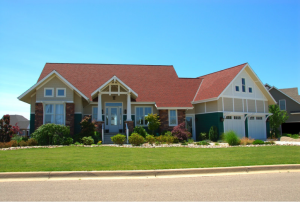Geothermal heating and cooling pumps have existed since the 1940s. The biggest difference between geothermal HVAC and other HVAC systems is that geothermal HVAC uses the rather consistent temperature of the Earth as the exchange medium, and not the outside air temperature, which can fluctuate considerably. Thus, in addition to not being dependent on the temperature of the outside air, geothermal HVAC systems last longer, require less maintenance and are quieter.
If you’re considering a geothermal HVAC system near Elmhurst, LaGrange, or Westmont, you’ll find that the upfront costs are higher than with a traditional HVAC setup. However, the long-term benefits far outweigh the initial investment.
Let’s look closer at geothermal HVAC’s wide-ranging upside:
Instead of relying on fossil fuel energy, geothermal HVAC uses free, renewable energy that comes straight from the Earth. There are no risks of toxic fumes, combustion gases, or carbon monoxide poisoning, and no risk of fire or explosions.
 Quiet
QuietGeothermal HVAC doesn’t require an outdoor condensing unit that standard HVAC systems require for central AC. Thus, geothermal HVAC systems are much quieter.
Depending on where you live and the size of your home, there’s a geothermal HVAC option that’s right for you. For example, vertical-loop systems are ideal for small lots, while horizontal-loop solutions are best for large homes. And if you live near a lake or pond, there are geothermal HVAC systems called “water-source” systems that can use these geographical features as energy sources.
This is one of the biggest benefits offered by geothermal HVAC. Since these systems don’t require outdoor air ventilation as an energy supplier, your home is far less exposed to outdoor allergens and pollutants, and air purification is excellent. Dehumidification is another significant upside – a geothermal HVAC’s air handler operates in a constant but low-cycling fashion, promoting the right dehumidification levels at all times in your home. This process of consistent, low cycling also ensures more even distribution of hot and cold air throughout the house, unlike forced-air HVAC systems with which homeowners can be forced to deal with hot and cold zones in different rooms.
On average, a standard HVAC system lasts 13 – 15 years. A geothermal HVAC solution lasts almost twice as long (around 24 years), and the underground components are even heartier, surviving for up to 50 years. This impressive lifespan translates into a considerably higher return-on-investment.
Speaking of investment, depending on climate and the specific type of geothermal HVAC solution, a 6-to-1 performance ratio is achievable. This means that for every one unit of electricity used by a geothermal HVAC solution, six times as much heat is produced. We’re talking about a level of efficiency that easily surpasses a traditional HVAC system and one that equates to lower operational costs. And if you opt for an Energy Star-qualified geothermal solution you can earn tax credits and lower your upfront purchase cost.
Along with avoiding fossil fuels and consuming minimal amounts of electricity, geothermal HVAC systems in Woodridge, Downers Grove, and Burr Ridge have little to no impact on the environment since they’re underground.
For cost and installation information regarding a geothermal HVAC system for your home, contact Hearthstone Heating in Westmont.

Amy Winters says:
It’s great that this article talks about how geothermal heating uses the temperature of the earth as the exchange medium. It’s cool to think that there is a technology that uses the earth as a heating and cooling medium. I appreciate you helping me learn more about geothermal heating and how these systems are long-lasting.